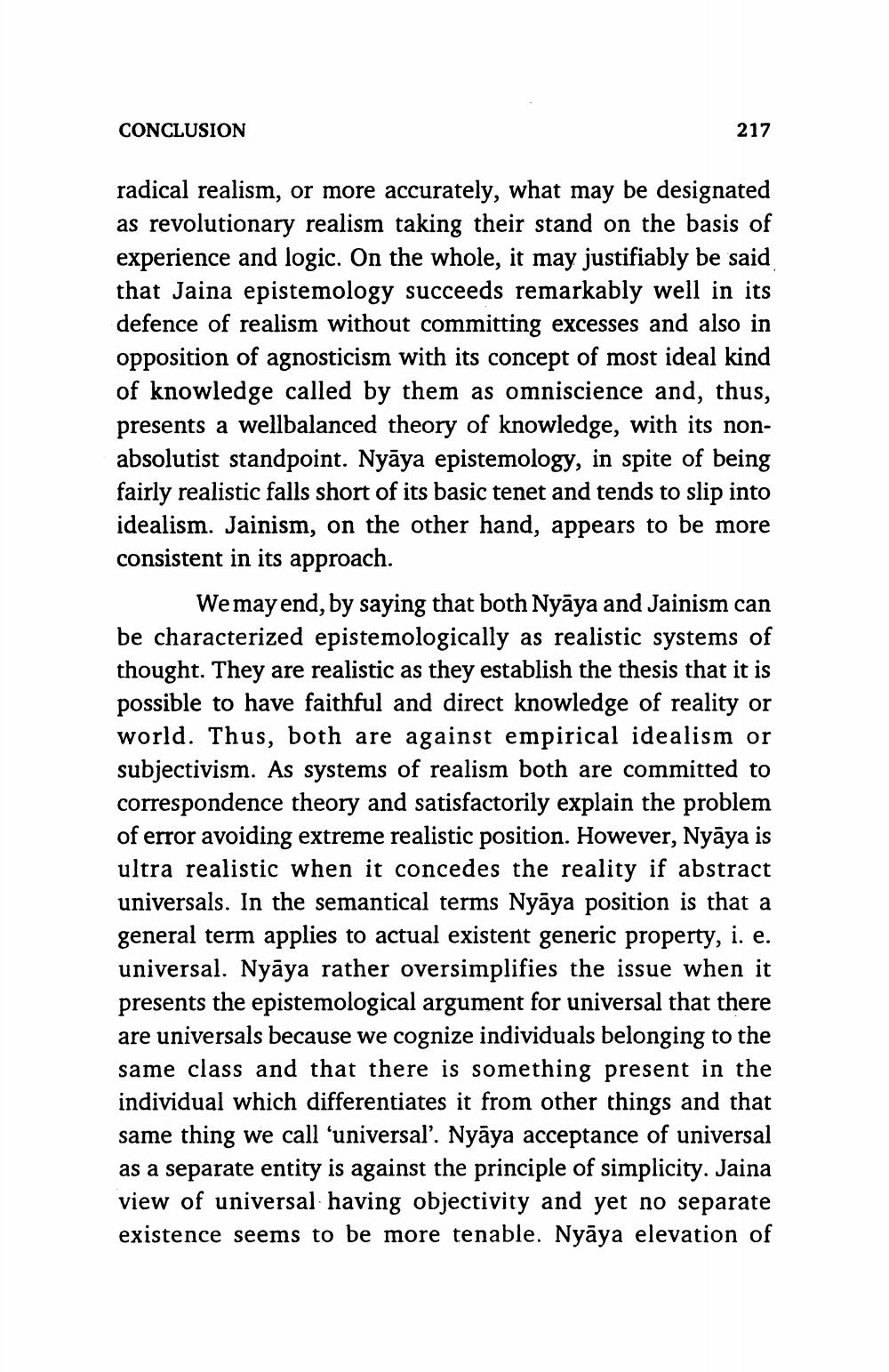________________
CONCLUSION
217
radical realism, or more accurately, what may be designated as revolutionary realism taking their stand on the basis of experience and logic. On the whole, it may justifiably be said that Jaina epistemology succeeds remarkably well in its defence of realism without committing excesses and also in opposition of agnosticism with its concept of most ideal kind of knowledge called by them as omniscience and, thus, presents a wellbalanced theory of knowledge, with its nonabsolutist standpoint. Nyāya epistemology, in spite of being fairly realistic falls short of its basic tenet and tends to slip into idealism. Jainism, on the other hand, appears to be more consistent in its approach.
We may end, by saying that both Nyāya and Jainism can be characterized epistemologically as realistic systems of thought. They are realistic as they establish the thesis that it is possible to have faithful and direct knowledge of reality or world. Thus, both are against empirical idealism or subjectivism. As systems of realism both are committed to correspondence theory and satisfactorily explain the problem of error avoiding extreme realistic position. However, Nyāya is ultra realistic when it concedes the reality if abstract universals. In the semantical terms Nyāya position is that a general term applies to actual existent generic property, i. e. universal. Nyāya rather oversimplifies the issue when it presents the epistemological argument for universal that there are universals because we cognize individuals belonging to the same class and that there is something present in the individual which differentiates it from other things and that same thing we call 'universal'. Nyāya acceptance of universal as a separate entity is against the principle of simplicity. Jaina view of universal having objectivity and yet no separate existence seems to be more tenable. Nyāya elevation of




